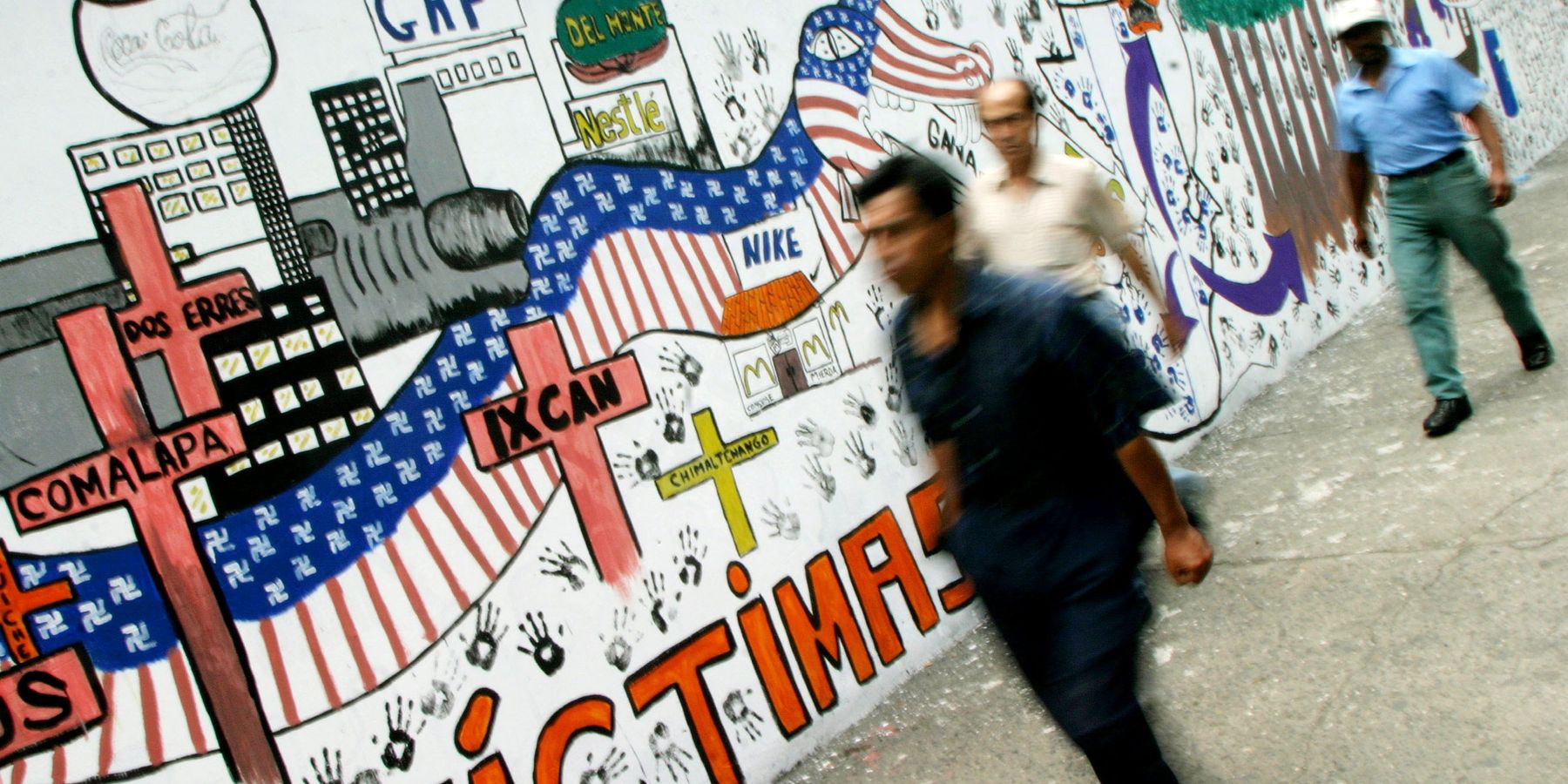The intertwined anniversaries this year of Guatemala’s 1944 Revolution and the 1954 coup that ended it provide an essential lens for understanding both Guatemala's history and U.S. geopolitical strategies in Latin America and the Global South more broadly.
The "Ten Years of Spring" (1944-1954) was a brief period of reforms aimed at addressing deep inequalities in land distribution and labor rights, particularly for the majority indigenous populations. However, this momentum was abruptly halted by a U.S.-backed coup in 1954, leaving lasting scars on Guatemala and shaping U.S. interventionist policies in the region and beyond.
The revolution and its reforms
Guatemala, prior to 1944, was ruled by authoritarian leaders who prioritized economic growth through coffee exports, often at the expense of the indigenous majority. Leaders like Manuel Estrada Cabrera and Jorge Ubico deepened inequalities by granting land concessions to U.S. companies like United Fruit Company (UFCO) and enforcing labor exploitation. This led to a revolution in 1944 that ousted Ubico and ushered in democratic reforms under President Juan José Arévalo. His successor, Jacobo Árbenz, introduced Decree 900 in 1952, an ambitious land reform policy aimed at redistributing large unused estates to landless peasants, mainly benefiting indigenous workers.
The reforms were met with fierce opposition from Guatemala's elite and the U.S. government, which had economic interests tied to UFCO. By 1953, Árbenz’s government had expropriated large amounts of UFCO’s unused land, angering U.S. officials who were closely linked to the company. The Eisenhower administration, influenced by Cold War fears of communism, decided to act.
The U.S.-backed coup of 1954
In 1954, the Central Intelligence Agency orchestrated a coup against Árbenz, known as Operation PBSUCCESS. Using psychological warfare, propaganda, and economic pressure, the CIA helped create a rebel army that toppled the Guatemalan government. The coup set a precedent for U.S. interventions throughout Latin America, exemplified in future actions in Cuba, Brazil, and Chile, and beyond.
The coup was justified by claims of countering communism, but it largely served U.S. economic interests and demonstrated the growing influence of business on American foreign policy. U.S. companies, especially UFCO, lobbied for the coup to protect their holdings, reflecting the deep entanglement of business and government. The success of Operation PBSUCCESS emboldened the U.S. to use similar tactics in future interventions, ranging from covert actions to full-scale invasions.
Long-term consequences
The overthrow of Árbenz deepened Guatemala’s structural inequalities, sparking a civil war that lasted from 1960 to 1996 and resulted in over 200,000 deaths, mostly indigenous civilians. The war, largely fought between government forces and leftist guerrillas, saw brutal counterinsurgency tactics supported by the U.S. The violence culminated in the genocide of the Mayan Ixil population in the early 1980s, with U.S. backing for the Guatemalan military despite knowledge of human rights abuses.
After decades of conflict, Guatemala transitioned to civilian rule in 1985, but the legacies of U.S. intervention remain. Despite official U.S. aid being suspended from 1977 to 1983 due to human rights abuses, covert CIA and Israeli support continued. U.S.-trained military forces, entrenched social inequality, corruption, and persistent economic dependency have left Guatemala vulnerable to the pressures of transnational capital and global warming. Poverty and malnutrition are widespread, worsened by climate change, which has ravaged the agricultural sector.
U.S. foreign policy and Guatemala’s place in the global order
Guatemala's history serves as a case study in how U.S. geopolitical strategies have shaped the modern world, particularly in terms of economic domination and militarized governance. As journalist Vincent Bevins argues in "The Jakarta Method," U.S. interventions often create dependent, corrupt regimes that perpetuate cycles of violence and inequality. This pattern can be seen in many countries that fell under U.S. influence during the Cold War, from Guatemala to Indonesia and Brazil.
Implications for today
Reflecting on Guatemala's revolution and its violent suppression offers valuable lessons for today's geopolitical landscape. The resurgence of political figures like President Bernardo Arévalo, the son of former President Juan José Arévalo, signifies a return to the democratic ideals championed during Guatemala’s brief democratic spring. Arévalo’s anti-corruption platform resonates with indigenous communities still suffering from the legacies of U.S. intervention, suggesting a desire to revisit the unfinished business of Guatemala’s democratic revolution.
Guatemala's struggle also underscores the broader global challenge of confronting U.S. militarism, which remains a significant driver of global inequality. The U.S. national security state, which has expanded dramatically since World War II, continues to prioritize military dominance over social welfare, exacerbating poverty, climate change, and social unrest worldwide.
- Biden’s disgraceful nomination of Elliott Abrams ›
- Ex-Paraguay prez finds himself on wrong side of US power ›
- Beware the redux: America's violent Cold War history ›
- The dark side of Eisenhower's foreign policy ›
















